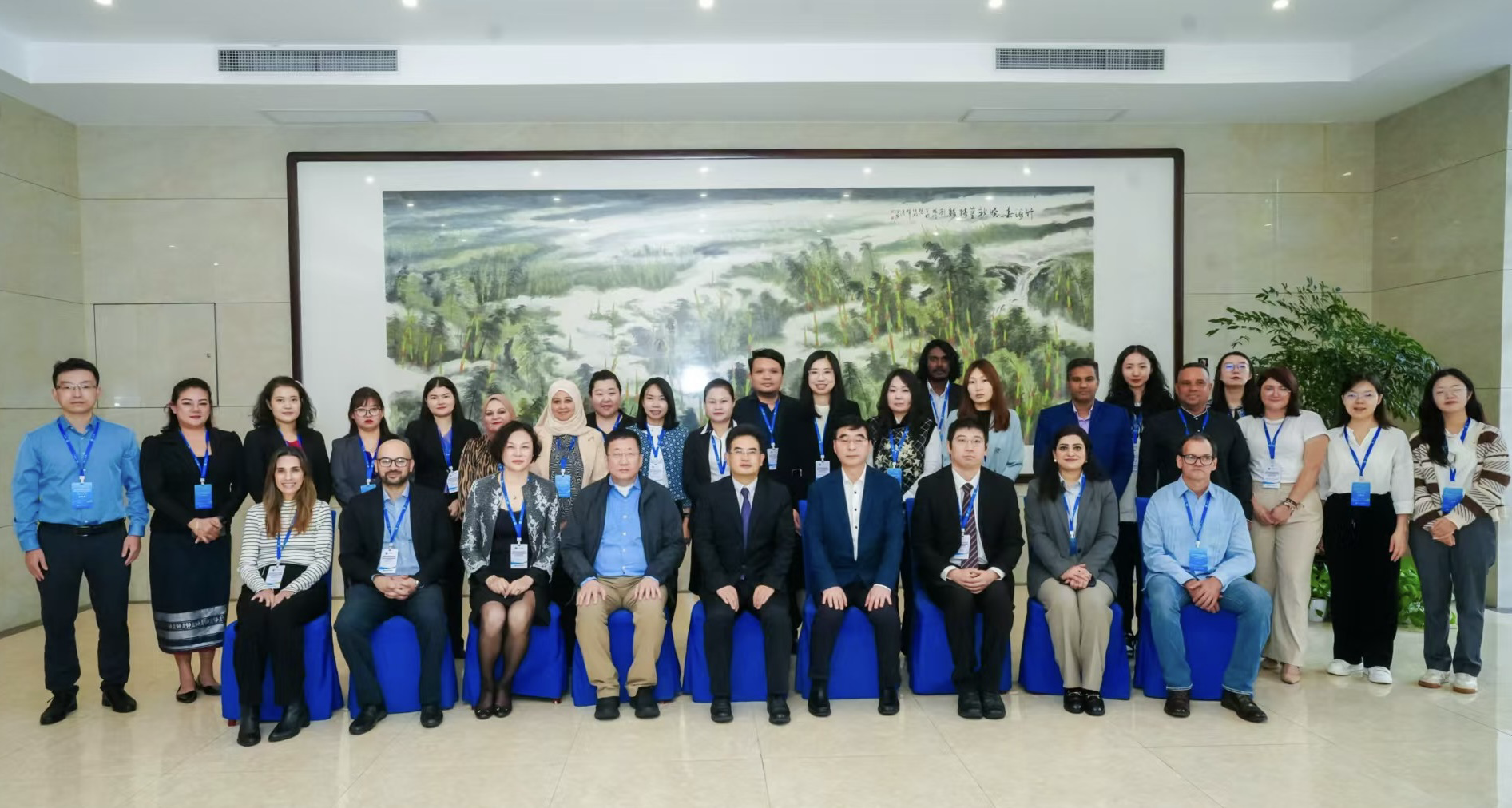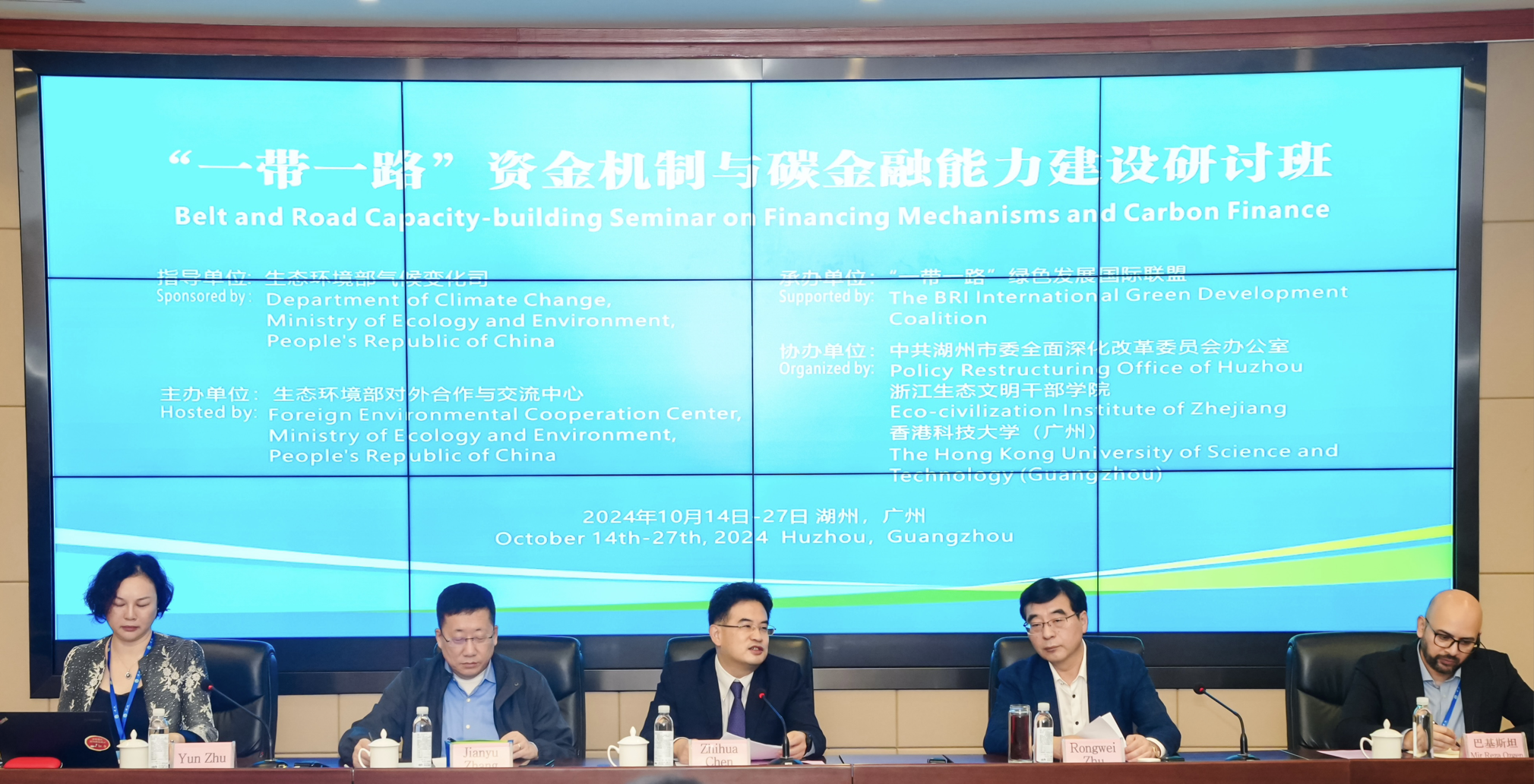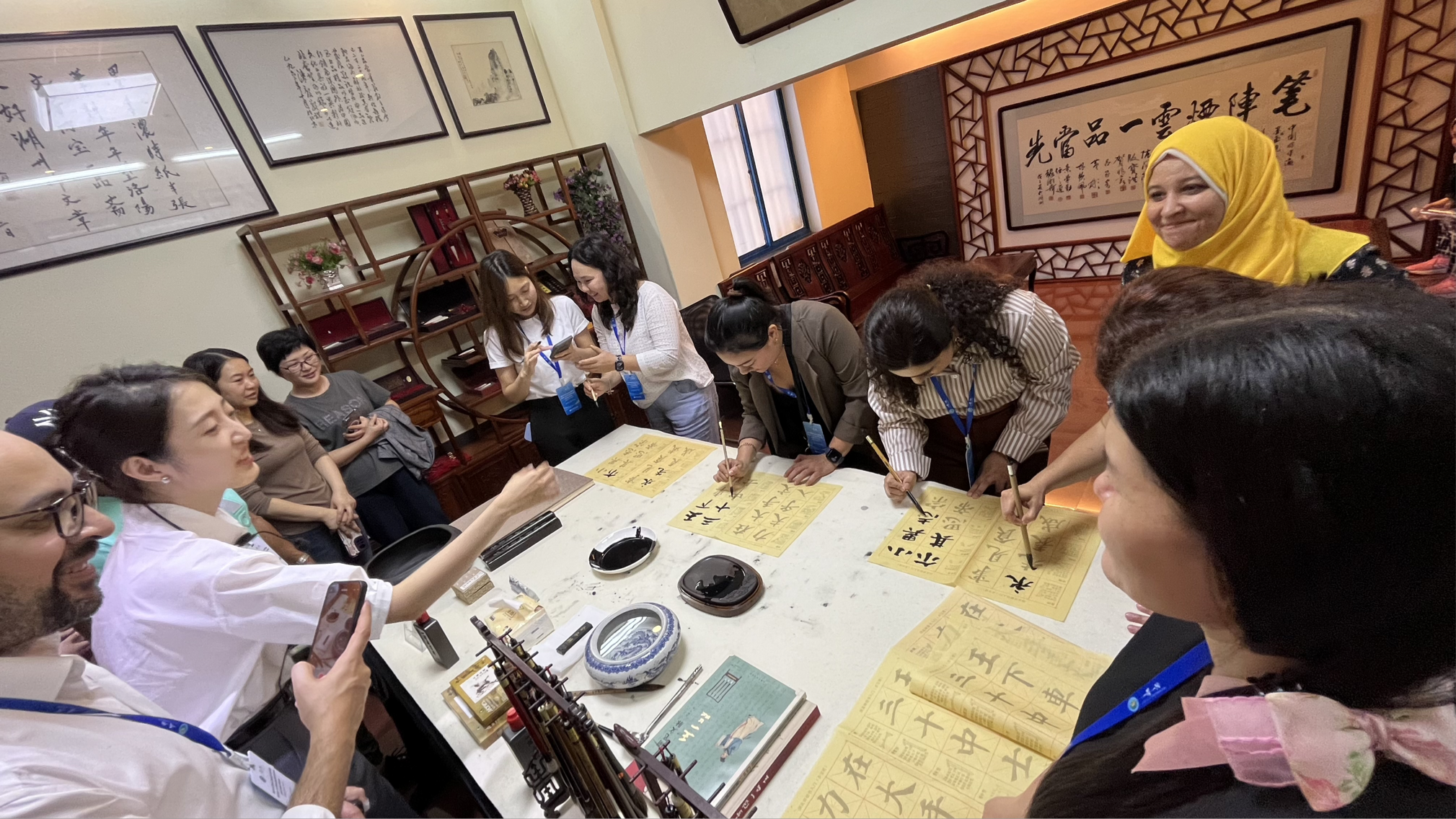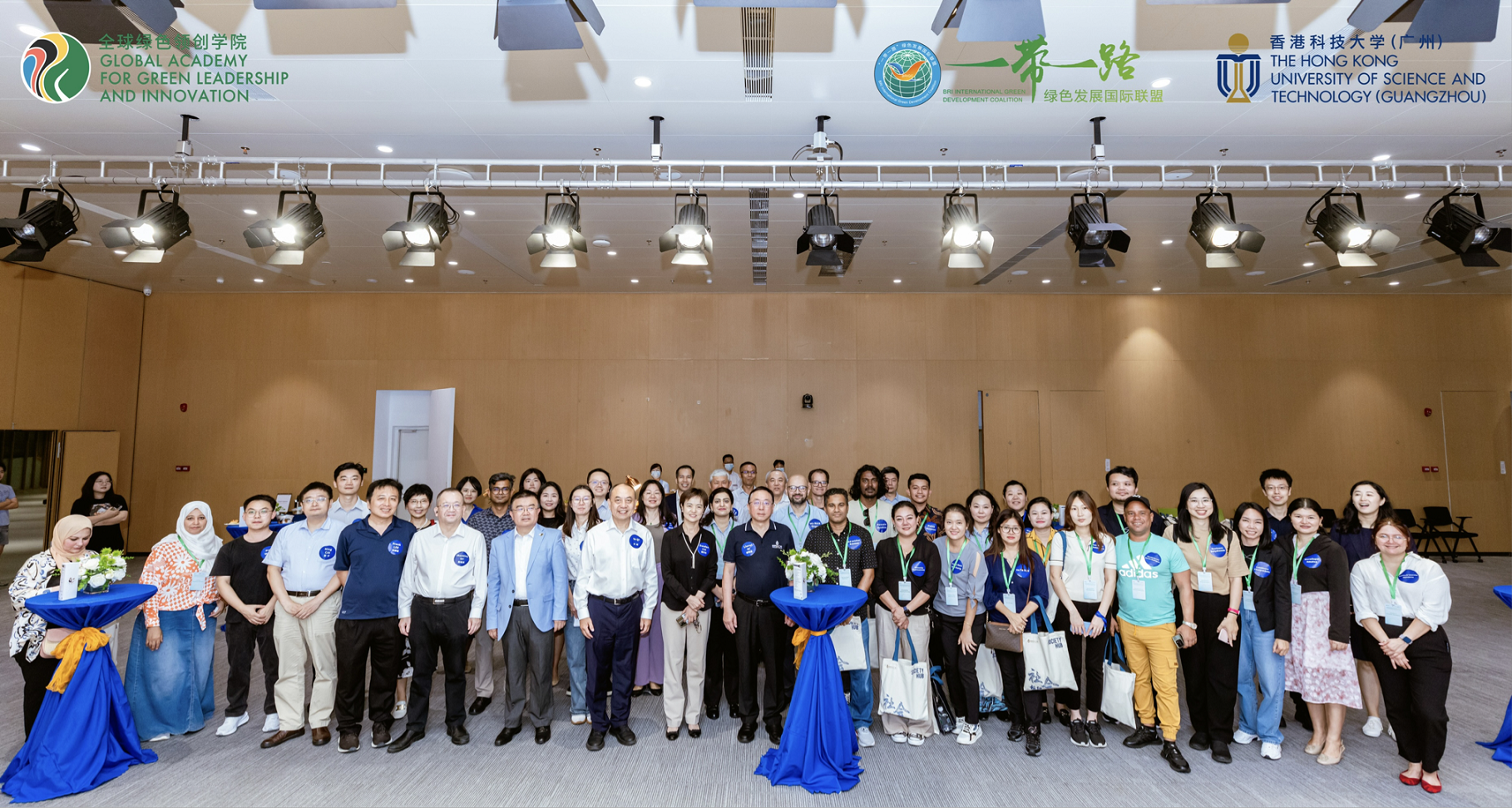Belt and Road Capacity-Building Seminar on Financing Mechanisms and Carbon Finance kicks off, enhancing communication on climate change, investment and financing development, green and low-carbon
"Thanks to this program, we have significantly deepened our understanding of green Belt and Road and the development of climate investment and financing. The lectures are informative. The study tours are exciting. We have learned a lot. The Belt and Road Initiative provides us with an excellent platform to share resources, exchange experience, and collaborate on innovations, collectively promoting a green and low-carbon transition," said Marta Bandeira de Freitas, Division Chief from the Department of Infrastructure, Energy Transition and Climate Change at the Brazilian Development Bank, during the graduation ceremony.
From October 15 to 26, the Belt and Road Capacity-Building Seminar on Financing Mechanisms and Carbon Finance was successfully held. The seminar was hosted by the Department of Climate Change of the Ministry of Ecology and Environment of China, guided by the National Center for Climate Change Strategy and International Cooperation, and organized by the BRI International Green Development Coalition (BRIGC). This program featured high-quality courses focused on themes such as climate change, investment and financing, and green and low-carbon transition, coupled with study tours, field research, and cultural experiences, facilitating discussions and exchanges among 21 participants from 13 countries, including Pakistan, Lao PDR, Cambodia, Honduras, Indonesia, Brazil, and etc.

Group photo taken at the opening ceremony of the Belt and Road Capacity-Building Seminar on Financing Mechanisms and Carbon Finance.
-- Sharing green development experience to contribute Chinese wisdom to global ecological progress
In recent years, China has been promoting ecological progress with historic accomplishments. While addressing its own environmental issues, China has also been helping Belt and Road partner countries to improve their ecological and environmental governance capacity through experience sharing and technical support. "According to the requirements of the United Nations Framework Convention on Climate Change and the Paris Agreement, developed countries should provide funding and technical support to developing countries to help them actively address climate change. However, the commitment made by developed countries to provide 100 billion U.S. dollars annually has yet to be fulfilled. Against this backdrop, holding such a seminar on climate finance is of great significance. It represents China's practical actions in South-South cooperation capacity building to address climate change," stated Chen Zhihua, Deputy Director General of the National Center for Climate Change Strategy and International Cooperation, at the opening session.
Cui Dandan, Secretary-General of the BRIGC, warmly welcomed the participants and expressed hopes that they would explore relevant theories and practices regarding green development and carbon finance, developing the seminar into a demonstration project for cultivating global green innovation leadership.
Zhang Jianyu, Chief Development Officer of the BRIGC, noted that China has undertaken practical cooperation with Pakistan, Lao PDR, and Cambodia to address climate change, and is exploring cooperation in renewable energy development and planning, green investment and finance, and climate finance with Honduras, Indonesia, and Brazil. Zhang looked forward to deepening collaborations with relevant countries and further expanding environmental and climate cooperation.

Photo shows the opening ceremony of the Belt and Road Capacity-Building Seminar on Financing Mechanisms and Carbon Finance.
-- Developing countries face multiple challenges in development and climate change
Developing countries are facing multiple challenges including poverty alleviation, development, and climate change. For these countries such as Indonesia and Honduras, enhancing the capacity to address climate change is urgent.

Photo shows that the participants of the Belt and Road Capacity-Building Seminar on Financing Mechanisms and Carbon Finance are being Interviewed.
Indonesia still faces challenges in climate finance. Putra Maswan, Finance and Economic Analyst at the Institute for Essential Services Reform in Indonesia, stated in an interview that Indonesia needs approximately 20 billion to 25 billion U.S. dollars annually to achieve its Nationally Determined Contributions (NDCs). There has been a significant funding gap over the past five years.
Honduras is highly vulnerable to the impacts of climate change due to its geographical location and reliance on agriculture. Emilia D Vicente Mendoza, Program Coordinator at the Ministry of Natural Resources and the Environment, Honduras, noted that extreme weather events are becoming more frequent and severe, putting immense pressure on the economy and rural communities, exacerbated by biodiversity loss which intensifies climate vulnerability.
In recent years, China has actively engaged in South-South cooperation to address climate change. Mir Reza Ozgen, Additional Finance Secretary of the Finance Department of the Government of Punjap in Pakistan, stated that South-South cooperation reflects China's commitment to knowledge transfer, collaboration, and sharing. Other countries can learn from and draw upon the experience and wisdom of China, as it offers opportunities and platforms to tackle climate change.
Chen Zhihua said, to date, China has signed 53 Memorandums of Understanding on South-South cooperation in climate change with 42 developing countries. These efforts include collaborating on building low-carbon demonstration zones, implementing projects for climate mitigation and adaptation, and training about 2,600 officials and technicians in climate field from more than 120 developing countries.
-- Capacity-building and cooperation on financing mechanisms and carbon finance to reach new heights
The Belt and Road Initiative serves as an accelerator for global economic growth and an important platform for promoting and practicing international cooperation, especially South-South cooperation. This year marks the beginning of the second golden decade of cooperation on the BRI, during which the capacity building and cooperation on financing mechanisms and carbon finance are expected to reach new heights.
Climate change is a significant challenge faced by the international community, concerning humanity's future and the sustainable development of all countries. Zhu Yun, Director of the Department of Partners and Membership Development of the BRIGC, stated at the graduation ceremony that this program reinforces the conviction that no country can be immune from the common challenge of global climate change. In the future, we need to work together to address this issue and achieve mutual benefits, Zhu added.
Over 12 days, more than 20 experts from different fields systematically introduced policies, actions, and experience related to climate investment and finance, sharing China's practice. All participants conducted various in-depth field research, including Yu Village in Anji County, Zhejiang Province. It is significant for further consolidating efforts to enhance financing mechanisms and carbon finance capacity, building a mutually supportive and favorable green finance environment. This program has received strong support from the Policy Restructuring Office of Huzhou, Zhejiang Province, the Eco-civilization Institute of Zhejiang, and the Hong Kong University of Science and Technology (Guangzhou).

Photo shows that the participants of the Belt and Road Capacity-Building Seminar on Financing Mechanisms and Carbon Finance are trying Chinese calligraphy.
During the graduation ceremony, a highlight video of the program was enjoyed by all participants. Zhu Yun and Qi Ye, the Acting Dean of Society Hub at the Hong Kong University of Science and Technology (Guangzhou) awarded the graduation certificates. The program concluded on a high note with a group photo. (Edited by Yang Linlin, linlinyanglyn@163.com)

Group photo taken at the Hong Kong University of Science and Technology (Guangzhou).


